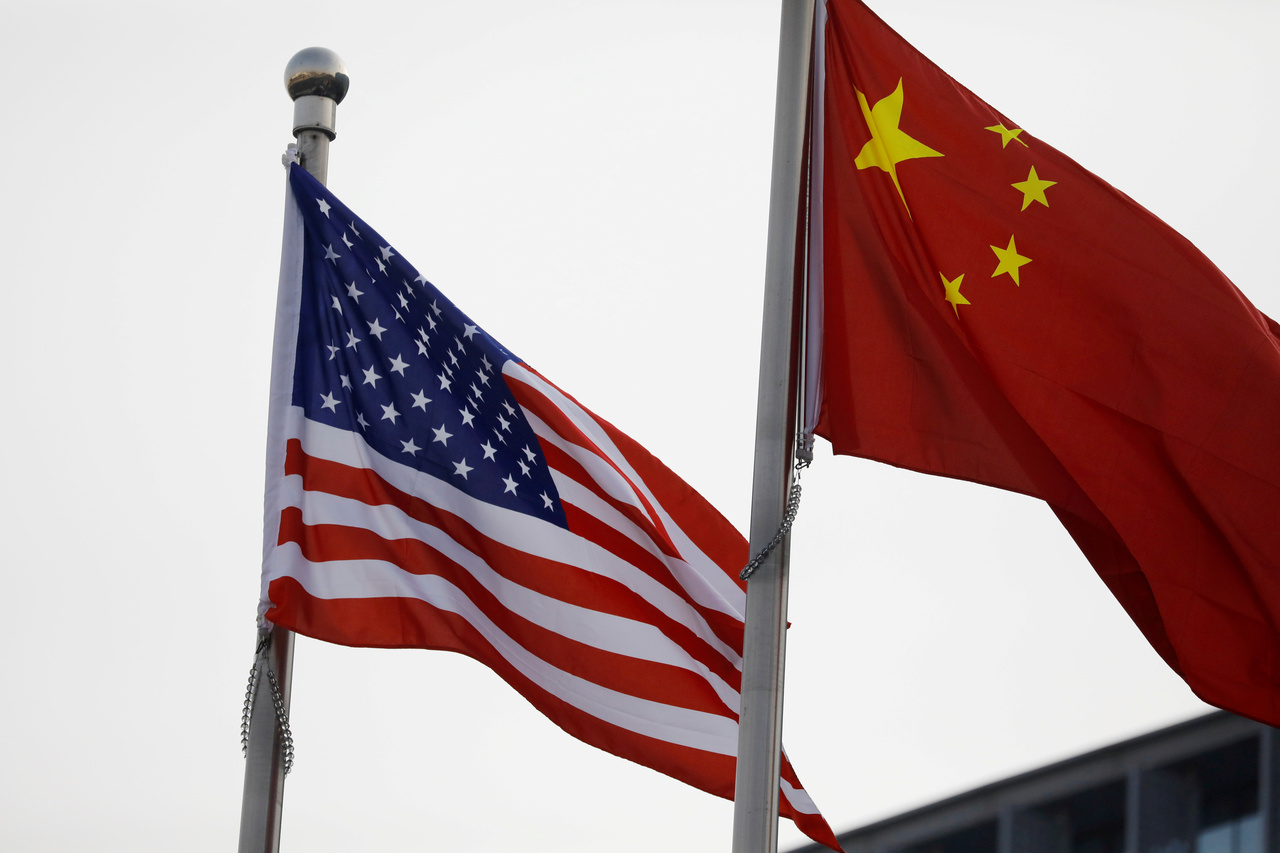China's blocking of Washington think-tanks is counterproductive, say analysts
Sign up now: Get ST's newsletters delivered to your inbox

China blocked access to the website of Washington-based think-tank Centre for Security and International Studies this week.
PHOTO: REUTERS
Follow topic:
WASHINGTON - China this week blocked access to the website of the leading Washington-based think-tank Centre for Strategic and International Studies (CSIS).
The main precipitating factor is seen to be a recent article by four fellows at the centre who expressed support for a renowned German think-tank sanctioned by China.
But blocking the CSIS website is a mistake at a time when scholarly exchange is more important than ever, Ms Bonnie Glaser, director of the Asia programme at the German Marshall Fund of the United States, told The Straits Times. She was formerly a senior adviser for Asia and director of the China Power Project at the CSIS.
"We Stand with Merics," said the CSIS piece, written by Ms Glaser, Mr Jude Blanchette, Mr Matthew Goodman and Mr Scott Kennedy. China's move was part of a "darkening trend" in academic exchange, they wrote.
Merics is the Berlin-based Mercator Institute for China Studies, which was one of four European institutions sanctioned by China last month in what appears to be a tit-for-tat. The European Union had, in a move coordinated with Canada, the United Kingdom and the United States, sanctioned four Chinese officials and the Xinjiang public security bureau over human rights abuses.
The CSIS is one of a handful of Washington think-tanks blocked by China. These include the Wilson Centre and the Brookings Institution, both considered centrist.
On the spectrum of think-tanks in the American capital - from which many experts rotate through successive administrations, provide policy advice from outside, and otherwise shape policy, through testimony at Congressional hearings for instance - the CSIS is considered "semi-establishment", an analyst with a different, conservative think-tank said.
And, in fact, being blocked in China would be seen as a feather in the cap of the CSIS, the analyst said.
This comes as, anecdotally, Western academics worry about going to China since the 2019 arrest on spying charges of the International Crisis Group's Mr Michael Kovrig, and North Korea tourism promotion operator Michael Spavor, both Canadians and both in prison following a secret trial.
Their arrest was seen as tit-for-tat for the arrest in Canada of Huawei Technologies chief financial officer Meng Wanzhou, who was charged by the US with fraud and circumventing sanctions against Iran.
The wariness is reciprocated. The US Justice Department is scrutinising Chinese students, scientists and scholars to curb what the US claims is industrial espionage and illegal technology transfer.
But the mutual wariness is not a good thing if the elites and policymakers in the two countries wish to understand each other, academics and analysts contend.
"Essentially what we said in the article was think-tanks and scholars should be off limits," Ms Glaser told this reporter for an ST Asian Insider video and podcast.
"We should not be imposing sanctions on think-tanks in China or in the US or in Europe or anywhere, or on individual scholars," she said.
"Scholarly exchange should be promoted even in this period, which has been rather prolonged. It started of course under the Donald Trump administration, when we had deteriorating relations between the United States and China."
She added: "I think this was a mistake and I think China's move to block the CSIS website just demonstrates that they are unwilling to listen to any of the voices in the outside world.
"And I think that's quite worrisome, because if (Chinese President) Xi Jinping is going to achieve his ambitious goals, he's going to need to have better relations with countries around the world. He can't just stamp out every voice in the world that criticises China."
Saying that it was a wrong move, Ms Glaser continued: "I hope they will reconsider, I hope they will lift the blockage on the CSIS website and, of course, on many other think-tanks... The number is growing."

